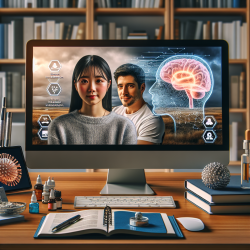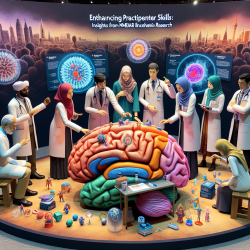The COVID-19 pandemic has dramatically transformed the landscape of psychotherapy, compelling practitioners to adopt videoconferencing psychotherapy (VCP) as a primary modality. This sudden shift has unveiled both challenges and opportunities, prompting a deeper examination of how VCP can be optimized for effective therapeutic outcomes.
According to the research article "Videoconferencing Psychotherapy During the Pandemic: Exceptional Times With Enduring Effects?" by Fernández-Álvarez and Fernández-Álvarez, several key insights can help practitioners improve their skills and adapt to this new norm.
1. Embrace the Therapeutic Alliance
The therapeutic alliance is a cornerstone of effective psychotherapy. Despite the inherent differences between in-person and VCP, research indicates that a strong therapeutic alliance can still be formed online. Practitioners should focus on:
- Maintaining eye contact and active listening.
- Addressing any technical issues promptly to minimize disruptions.
- Being mindful of non-verbal cues, even though they might be less apparent.
2. Adapt Interventions to Patient Needs
VCP requires a tailored approach to meet the diverse needs of patients. Consider the following:
- Assessing digital literacy and providing guidance as needed.
- Adapting traditional therapeutic techniques to the online format.
- Being culturally sensitive and considering socioeconomic factors.
3. Foster Openness and Disinhibition
Interestingly, VCP can sometimes promote greater openness and disinhibition among patients, potentially leading to more honest and productive sessions. Therapists should leverage this by creating a safe and non-judgmental virtual space.
4. Prioritize Self-Care and Supervision
The transition to VCP can be demanding for therapists. It's crucial to prioritize self-care and seek supervision to navigate this new modality effectively. Online supervision can offer flexibility and support, ensuring therapists remain competent and confident.
5. Encourage Continuous Learning
Finally, the rapid adoption of VCP highlights the need for ongoing education and training. Practitioners should engage in webinars, conferences, and peer supervision to stay updated on best practices and emerging research.
By implementing these strategies, therapists can enhance their practice and continue providing high-quality care in the evolving landscape of psychotherapy.
To read the original research paper, please follow this link: Videoconferencing Psychotherapy During the Pandemic: Exceptional Times With Enduring Effects?










